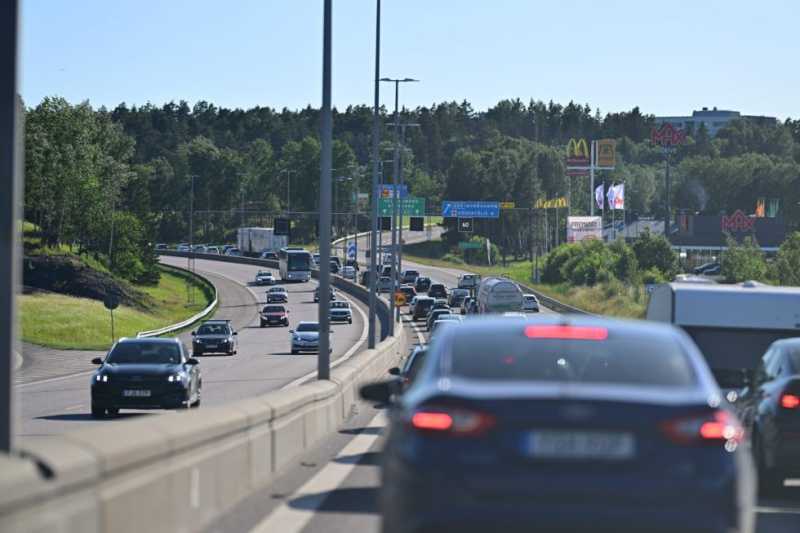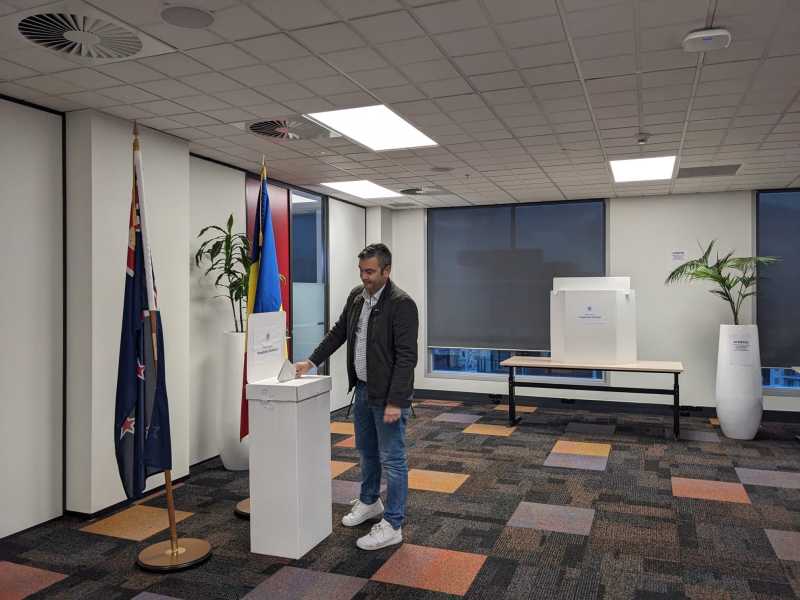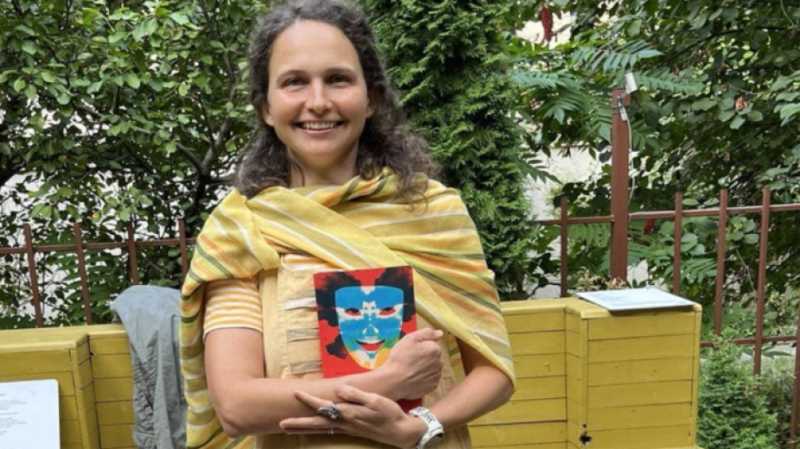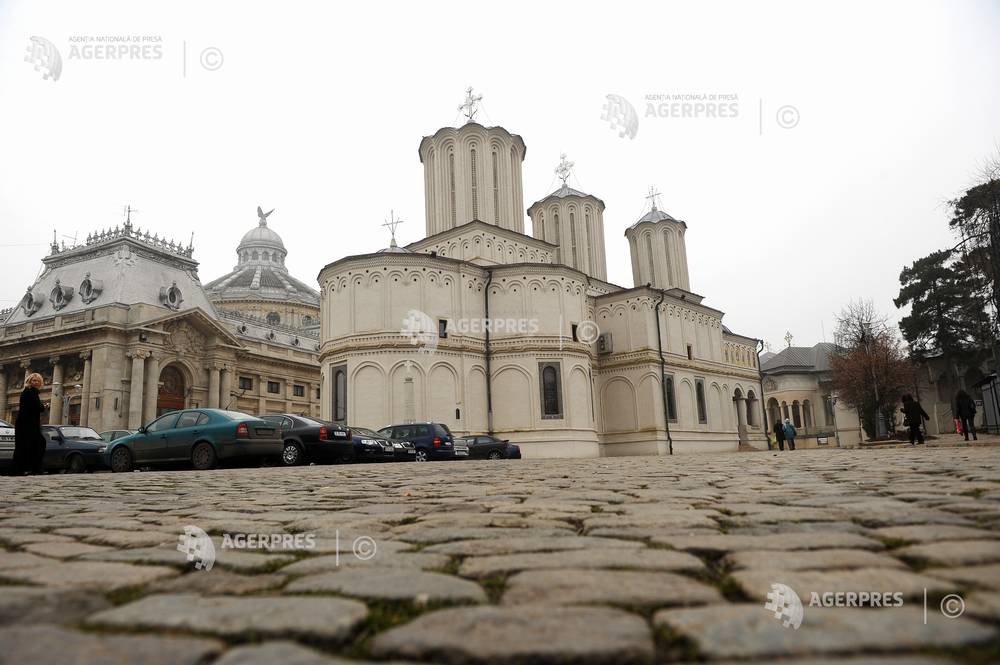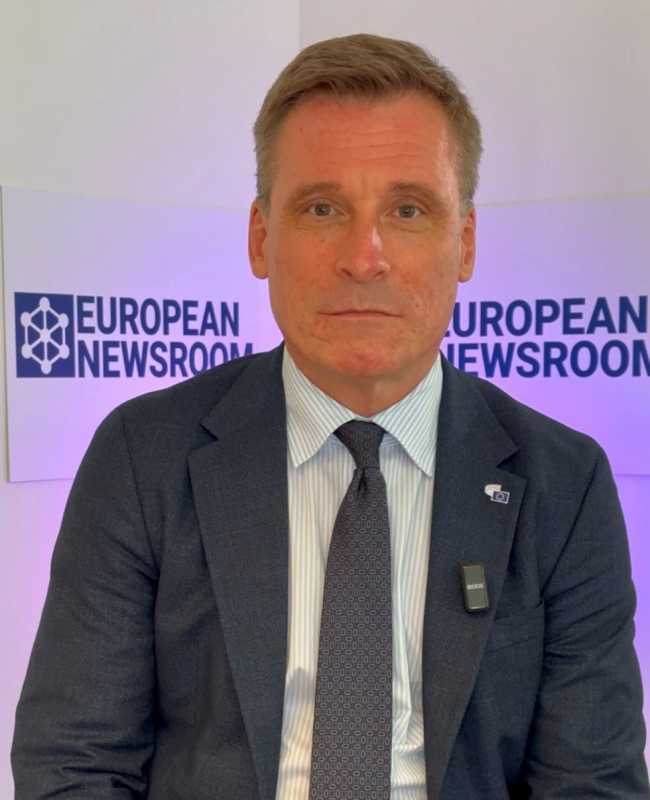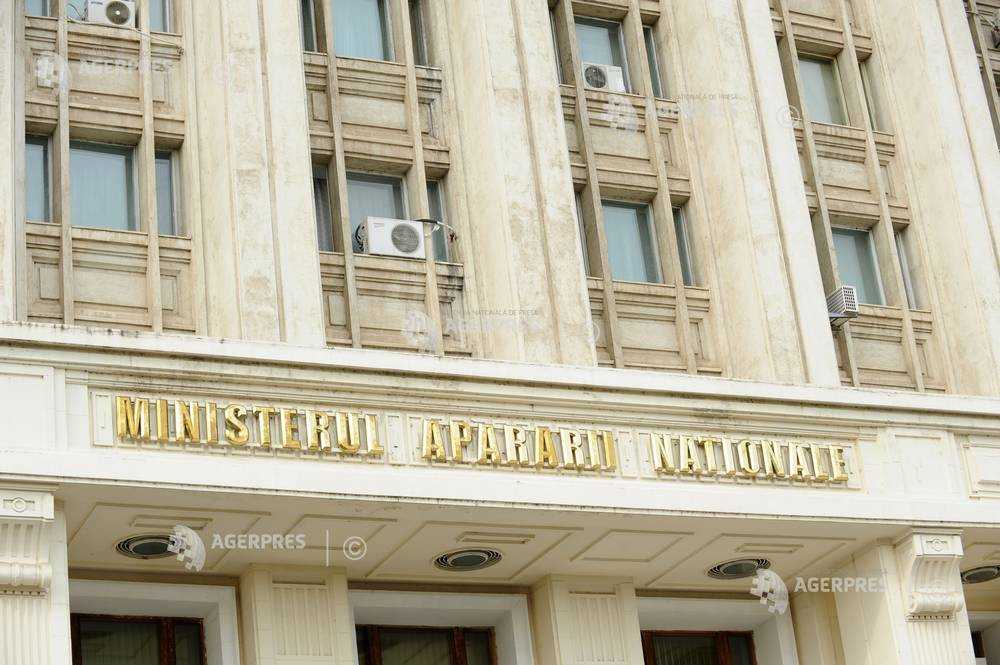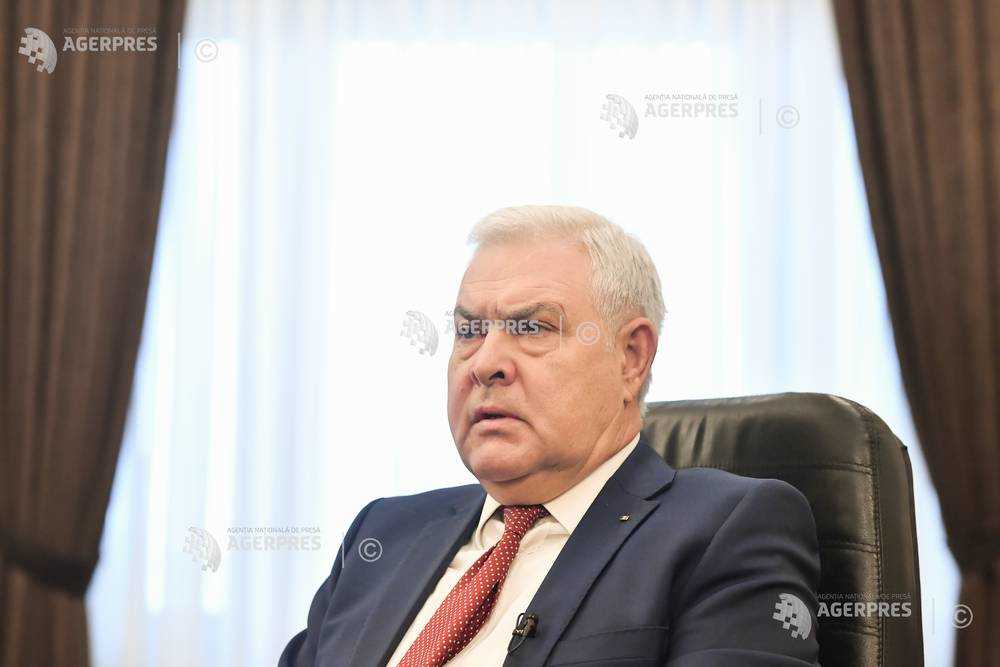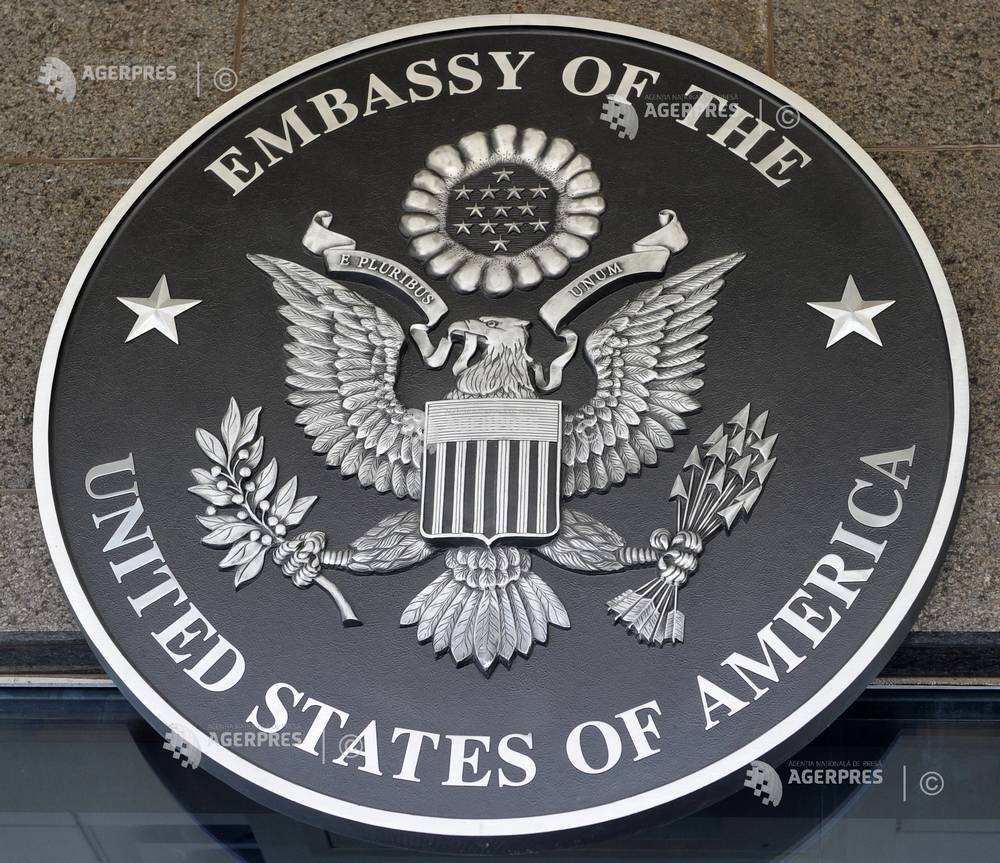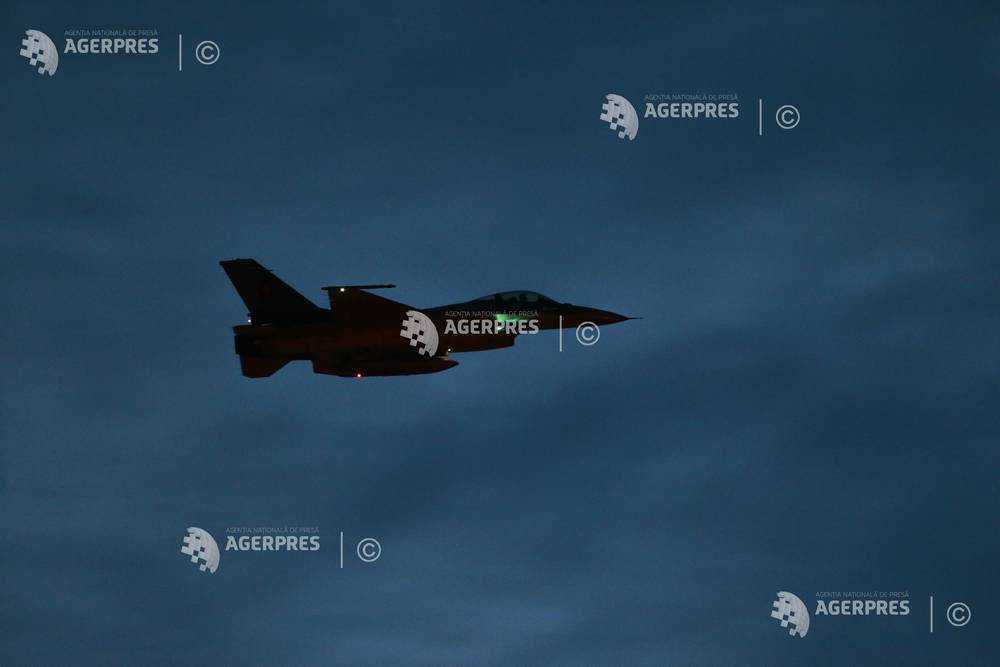'Corruption Kills': red hand Balkan protests shake the EU's backyard (enr)
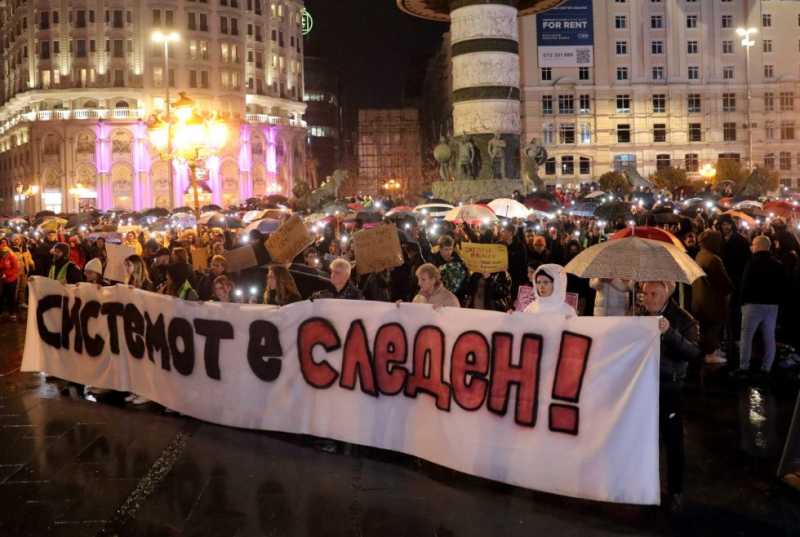
Brussels, March 28 /Agerpres/ - Protests have erupted across the Balkans, fueled by deadly disasters linked to corruption. From Serbia to North Macedonia, young people are taking to the streets, demanding accountability in a region where aspirations to join the European Union clash with entrenched graft.
Massive student-led anti-corruption protests have spread from Serbia to neighbouring Balkan countries, with thousands rallying under the slogan 'Corruption Kills' following a series of deadly tragedies that have claimed dozens of lives.
The collapse of a train station roof in Serbia, a devastating nightclub fire in North Macedonia, political turmoil in Bosnia and Herzegovina (BiH) as well as in Bulgaria - Europe's Balkan region is gripped by crises.
Young people have used the rallies to vent their anger in a region of Europe that rights groups say suffers from endemic corruption, prompting hundreds of thousands in Serbia alone to take to the streets demanding change.
Serbia ranks 105th out of 180 countries on the latest global corruption perceptions index - its worst position in more than a decade. North Macedonia fares only slightly better at 88th place, and EU member Bulgaria stands at 76th place.
The region has long struggled with corruption, weak rule of law and political instability, all of which have hampered some of the countries' path to EU membership, for which anti-graft measures are a key priority.
North Macedonia became an EU candidate country in 2005, followed by Serbia in 2010. Serbia's progress has however stalled in recent years, the main obstacle being its tense relationship with Kosovo. Bulgaria, on the other hand, joined the EU in 2007.
Here's what you need to know.
Serbia: train station canopy collapse
The wave of demonstrations on a scale unseen in Serbia since the 1990s kicked off after a recently renovated train station canopy collapsed on November 1 in the northern city of Novi Sad. 16 people died as a result of the collapse.
Across Serbia, a blood-red hand has appeared on banners, pins, and walls, becoming the symbol of protests. Many critics blame the deaths on corruption and inadequate oversight of construction projects, especially as restoration work at the train station had been completed shortly before the accident.
In the latest mass rally on March 15 in Belgrade, between 100,000 and 300,000 people are estimated to have taken part, the largest in Serbian history. The largely peaceful demonstration was however disrupted after an unknown noise caused a brief panic. Some protesters and members of the political opposition allege the authorities used an acoustic cannon - a military device used to disperse crowds -, a charge the government has denied.
Serbian President Aleksandar Vuèiæ told reporters after a working dinner with European Council President António Costa and European Commission President Ursula von der Leyen in Brussels on Tuesday that he informed the EU officials there had been no sound cannon and that Serbia stood ready to verify this claim.
A statement by the European Commissioner for Enlargement, Marta Kos, describing last week's meeting with Vuèiæ as constructive, sparked public condemnation from several civil society organisations, who accused the EU of hypocrisy. In an interview with Slovenian media on Thursday, she brushed aside the criticism, saying that at the moment there is no one else in Serbia to talk with to ensure that the country stays on the EU accession path.
The months of protests are the biggest challenge to Vuèiæ's 12-year rule. They have already led to the resignation of several high-ranking officials, including Prime Minister Miloš Vuèeviæ. More than a dozen people have been charged in connection with the tragedy, including former transport minister Goran Vesiæ, who resigned days after the incident.
Countries in Serbia's neighbourhood have also rallied in support of the protests in Belgrade, for example in the Slovenian capital Ljubljana. Slovenia is still awaiting an explanation from the Serbian authorities for the refusal of entry into Serbia to a news crew from the Slovenian television channel POP TV ahead of the March 15 demonstration.
North Macedonia: deadly night club fire
The symbol of those protests - a bloodied red hand print - has also turned up at rallies in neighbouring North Macedonia after a fire at a nightclub in Kocani operating under a questionable license killed 59 and injured almost 200 on March 16.
Kocani is a town of just 30,000 people, so the deaths of 59 people - most of them teenagers and young adults - touched almost every home. The incident was the worst loss of life in the Balkan nation since 1993, when two deadly plane crashes occurred.
The blaze was linked to stage fireworks set off inside, which triggered a stampede for the exit. The prosecutor's office said the club had breached numerous fire regulations, including having insufficient extinguishers and emergency exits.
Thirty-four people, including top officials, are suspected of breaching safety standards. On Sunday, the Koèani Basic Court ordered 30-day detention for 24 suspects. Among the detained were the last three Koèani mayors, of which the last resigned a day after the tragic event.
The largest public protest after the incident was organised on March 24, with thousands of protesters on the streets in the capital Skopje under the slogan 'The system is next'.
In a show of solidarity, Bulgarian anti-graft protesters last week held a few minutes' silence remembering the Koèani incident.
Protests in the wake of the Koèani fire have also been held in neighbouring Greece. Dozens of people stood silent for an hour in the central square of the northern Greek city of Thessaloniki over the weekend.
In Romania, a similar fire occurred in 2015 at the Colectiv Club in Bucharest. With a toll of 64 deaths and 163 injured, it was one of the biggest tragedies in Romania in the last 50 years. Following massive protests also under the slogan 'Corruption Kills', the then prime minister, Victor Ponta, resigned.
Bulgaria: oligarchs and animal abusers
In Bulgaria, protesters have been taking to the streets for various reasons. By far the largest protests were in support of the rule of law and against animal cruelty - but media and health care professionals also demonstrated for higher pay and better working conditions.
Rule of Law: On March 19, citizens gathered in front of the Palace of Justice in Sofia for a protest in support of the rule of law, under the slogan 'Peevski Out of Power'. Delyan Peevski is a powerful oligarch in Bulgaria and the leader of the MRF-New Beginning party. While not part of the government coalition, he is widely seen as having much sway in its decision-making. Protesters said Bulgarians did not vote for Peevski to rule the country.
Peevski was designated by the US under the Global Magnitsky Act in 2021 as an oligarch who has regularly engaged in influence peddling and corruption to advance his interests.
Animal cruelty: Protests against animal cruelty and abuse were held in several major cities on March 23. They were sparked by the case of two people who were charged for filming videos of animal abuse in exchange for money. The protesters demanded severe punishments for animal cruelty, real enforcement of penalties, and a crackdown against online platforms that distribute animal cruelty content.
BiH: catastrophic floods and Dodik on the loose
In October 2024, Bosnia and Herzegovina was hit by heavy rains that caused floods and landslides that buried houses and people. The tragedy has raised questions about corruption and institutional irresponsibility in BiH and highlighted the need for transparency and efficiency in managing natural resources and protecting citizens.
At the same time, political instability in BiH is further deepening due to legal and political crises in the country. Blockades in passing key reform laws, conflicts among political leaders, and a lack of cooperation at the state level are seriously hindering the functioning of institutions and the country's European path. This particularly concerns the President of Republika Srpska, Milorad Dodik, who has been threatening the separation of the Serbian entity from BiH for years and claims that the country has no future.
Today's organisation of BiH was agreed upon by the 1995 Dayton peace agreement. An integral part of that peace agreement is the constitution on the basis of which BiH functions.
According to that constitution, BiH is divided into two entities - Republika Srpska (RS), which makes up 49 percent of the territory and has a majority-Serb population; and the Federation of Bosnia and Herzegovina (FBiH), which used to be referred to as the Bosniak-Croat Federation, due to its population consisting mainly of Bosniaks (Bosnian Muslims) and Croats.
The Court of BiH sentenced Dodik in February to one year in prison and a six-year ban from political activity for disregarding the decisions of High Representative Christian Schmidt, who oversees the implementation of the Dayton peace agreement. Prosecutors issued an arrest warrant for Dodik after he failed to respond to summons for questioning on charges of undermining the constitutional order.
Dodik however recently left BiH, attending events in Serbia and Israel. This triggered an investigation into how he crossed the border despite an active warrant. These developments have further heightened tensions within BiH, while the international community warns of serious consequences for regional stability.
Meanwhile, political blockades in BiH institutions also threaten the country's EU future. The National Assembly of Republika Srpska adopted a decision that seeks to disable the work of state institutions, including the adoption of reform laws necessary for EU integration.
The content of this article is based on reporting by AFP, Agerpres, ANSA, BTA, FENA, HINA, MIA, STA, Tanjug, as part of the European Newsroom (enr) project. AGERPRES (editing by: Mariana Ionescu)
The content of the www.agerpres.ro website has the exclusive purpose of public informing.
All the information published on this website by AGERPRES is protected by relevant legal dispositions.
It is forbidden to copy, reproduce, recompile, decompile, distribute, publish, display, modify, create derived components or products or full services, as well as any exploitation of the site's content.
Details in the section Terms of Use. If you are interested in picking up AGERPRES news items, please contact the Marketing Department – [email protected].
The use of the Comments section entails your obligation to respect the AGERPRES terms and conditions in regards to the publishing of comments on the www.agerpres.ro.
Other news in category
Where in Europe has the most (and least) road fatalities? (enr)
Eurostat figures show a slight decrease in road deaths in 2023, but with thousands dying every year, what is the EU doing to change the situation and save lives? 20,380 people were killed in road accidents in the EU during 2023, a decrease of 1.3 percent compared with 2022, according to statistics published by Eurostat on Tuesday. The figure has
Presidential Election2025/ AEP: Over 19,000 voters in diaspora cast vote by Friday, 12:00 p.m
More than 19,000 voters went to the polls in the diaspora by Friday at 12 p.m. (Bucharest time) to vote in the first round of the presidential elections, according to data provided in real time by the Permanent Electoral Authority (AEP). According to AEP, from the opening of the polls on Thursday evening at 10:00 p.m. Bucharest time (7:00 a.m. local time) unti
PM Ciolacu: We stand in full solidarity with Israelis facing devastating fires
Prime Minister Marcel Ciolacu said on Thursday that the Bucharest Executive is ready to offer its help to the Israelis who are facing devastating fires. 'We stand in full solidarity with the people of Israel facing devastating fires. The Romanian Government is ready to offer its help, if necessary. Our authorities are in contact with our Israeli colleagues
CONTEMPORARY AUTHORS/Lora Nenkovska: 'Romanian literature deserves to be known profoundly'
Romanian contemporary literature seems to be better integrated with the international circuit, thanks both to the constant institutional support it receives and the festivals, translations, residencies, magazines, public debates that help promote it, said Lora Nenkovska, translator and lecturer of Romanian language and literature at the 'Kliment Ohridski' University
PM Ciolacu: Oradea-based smart fans facility will have one thousand employees
The smart fans facility in Oradea is set to reach a total of one thousand employees, prime minister Marcel Ciolacu informs on Wednesday. He welcomed the consolidation of the 'wave of German investments' in Romania. 'I note the consolidation of an economic trend this year, the wave of German investments in Romania. The latest example
Relics of St. Empress Helena to be brought to Romania on Wednesday
The relics of the Holy Empress Helena, mother of the Holy Emperor Constantine the Great, will be brought, starting on Wednesday and until May 8, on pilgrimage from Venice to the Pantocrator Monastery in Teleorman, and for a few hours they will be placed for worship in the Baldachin of the Saints near the Patriarchal Cathedral. 'It is a significant year for
PM Ciolacu hails partnership with SpaceX for development of new satellite technology
Bucharest, April 30 /Agerpres/ - Prime Minister Marcel Ciolacu on Wednesday hailed the partnership with the American company SpaceX for the development of a new satellite technology. 'I am pleased that we are partnering with a leading American company, SpaceX, owned by Elon Musk, to develop new satellite technology. This partnership is entering now a new p
Tourists, awaited with events, activities, culinary delights in the Danube Delta, starting with May 1
The bookings of guest houses in the Danube Delta for the May 1 mini-holiday is about 80%, similar to that of the Easter holidays, with festivals and sports competitions set to take place in May, in Tulcea and in the towns surrounded by the waters of the Danube Delta Reservation. The prices offered by the accommodation units in the Delta for the May 1 mini-holi
'The New Year That Never Came' awarded the Gopo Trophy for best feature film
The film "The New Year That Never Came," directed by Bogdan Muresanu, received the Gopo Trophy for the best feature film, at the 19th edition of the Gopo Awards Gala, which took place on Tuesday evening at the 'I. L. Caragiale' National Theatre in the capital city Bucharest. The award was presented to director Bogdan Muresanu by actress
Enforcement of rules key to battling disinformation, EESC president argues (enr)
Disinformation is an ever-growing danger to democracy, with campaigns often targeting vulnerable groups, the EESC's President Ropke says. Oliver Röpke, President of the European Economic and Social Committee (EESC), warns of the dangers posed by disinformation and artificial intelligence (AI) to democracy and civil society in the European Union.
Romanian Army to acquire new Patriot system from the US using non-reimbursable funds
The leadership of the Ministry of National Defence welcomes the decision of the US State Department to approve the sale to Romania of a long-range surface-to-air missile system (HSAM) - Patriot, through the Foreign Military Sales (FMS) security assistance programme, and the notification, in this regard, of the US Congress, according to standard American procedures.
President Bolojan: Romania is keen to further strengthen bilateral relation with Canada
Acting president Ilie Bolojan congratulates Canadian PM Mark Carney on winning the parliamentary elections. 'Congratulations to Canadian Prime Minister Mark Carney on winning the elections! Romania looks forward to continuing the dynamic development of our bilateral relations and working together for a strong partnership in the fields of economy, energy, s
DefMin Tilvar meets EP president Roberta Metsola on the sidelines of his official visit to Brussels
The minister of national defence, Angel Tilvar, had a bilateral meeting with the president of the European Parliament, Roberta Metsola, on the sidelines of his official visit to Brussels on Monday. According to a press release of the Ministry of Defence sent to AGERPRES on Tuesday, during the discussions, the Romanian official highlighted the essential role of
US Embassy: State Department approves sale of MIM-104 Patriot launcher to Romania
The US State Department has approved the sale of a MIM-104 Patriot firing unit to Romania, the US Embassy in Bucharest announces, indicating that this firing unit will replace the system that our country supplied to Ukraine in September 2024. According to the cited source, the MIM-104 Patriot system includes an AN/MPQ-65 radar set and two M903 launch stations.
MApN: Drone attack in Ukraine, near Romanian border, RO-ALERT message for population of Tulcea
A RO-ALERT message was sent on Monday night to the population of Tulcea county, in the context of the drone attacks by Russian forces on civilian and port infrastructure targets in Ukraine, near the Romanian border, with two F-16 aircraft of the Romanian Air Force and two Eurofighter aircraft of the Italian Air Force carrying out surveillance and protection missions over Rom


